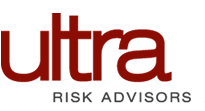Blogs By Jackie Johnston
5 Ways Human Services Organizations Can Address the Needs of Clients with PTSD
PTSD, or Post Traumatic Stress Disorder, is a psychiatric disorder that can occur following the experience or witnessing of life-threatening events such as military combat, natural disasters, terrorist incidents, serious accidents, or physical or sexual assault in adult or childhood. Most survivors of trauma return to normal given a little time. However, some people will Continue Reading »
5 Scenarios That Could Make Your Healthcare Client Vulnerable to a Lawsuit
Managing risk in healthcare facilities is a multi-faceted, ever-changing challenge. Identifying areas of vulnerability is the first step in any risk management program. In this blog post, we’ve identified five scenarios that can put healthcare entities and professionals at the greatest risk of a lawsuit and we’ve added some best practices that can be put Continue Reading »
5 Tips for Safeguarding Against HIPAA Violations
To avoid HIPAA violations, it’s important for healthcare organizations to put into place strict guidelines that protect patient privacy. HIPAA violations may result in penalties of $100 to $50,000 per violation, depending on the conduct at issue. When it comes to data breaches, a single event may result in numerous violations. For example, the loss Continue Reading »
Top 5 Types of Data Breaches in Healthcare – Not from Hacking
Healthcare is now the top industry for cyber attacks. Health records, much of which remain valid and exploitable for years, contain valuable information for hackers. Credit card data, email addresses, social security numbers, employment information and medical history records can be used in many instances of fraud or identity theft. But healthcare data breaches are Continue Reading »
5 Tips for Reducing the Risk of a Lawsuit in Physician Practices
We know that physician practices can benefit tremendously by developing and following a proactive risk management program. Sound practices can improve patient safety, avoid lawsuits and ensure consistent regulatory compliance. Each practice is unique and therefore needs an individualized approach based on factors such as specialty type and patient profiles – but we have outlined Continue Reading »






